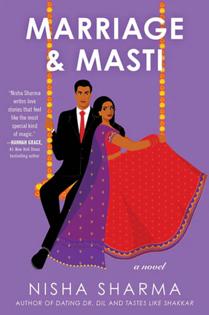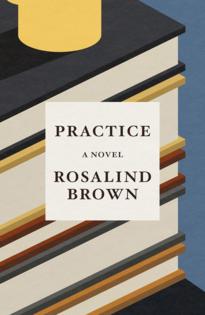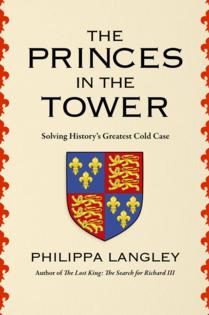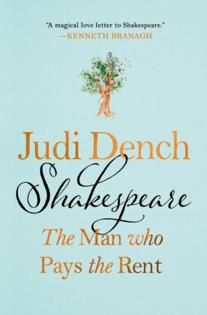10 new novels, romances and nonfiction books inspired by Shakespeare
Published in Books News
A 400-year-old spirit has been making its presence known. This voice from a long-gone past isn’t a Halloween haunt, though. It’s just never gone away.
Still, the spirit of William Shakespeare, who died in 1616, seems to be having an especially good time right now: In Washington D.C. over the summer, the Folger Shakespeare Library reopened – and a new Shakespeare museum will open in London in 2025. Radiohead’s Thom Yorke announced a U.K. stage mashup of “Hamlet” and his band’s 2003 album, “Hail to the Thief,” and Denzel Washington and Jake Gyllenhaal will do “Othello” on Broadway. Oscar winner Chloé Zhao is directing the screen version of “Hamnet,” Maggie O’Farrell’s moving 2020 novel about the death of Shakespeare’s son, which is scheduled to be out next year.
So is this an especially fruitful time for Shakespearean antics? We reached out to the Folger Shakespeare Library for insight.
“Shakespeare’s works resonate through the ages because they explore the complexities of human nature, emotion, and society through timeless reflections that have continued to influence literature, art and culture today,” said Katherine Harroff, the Folger’s director of engagement, in an email.
Even the Bard’s artistic contemporary (and sometime co-author?), the playwright Christopher Marlowe, is having a moment with “Lightborne,” Hesse Phillips’ novel about the final, intrigue-packed weeks of Marlowe’s life, which is in stores now.
While Shakespeare-inspired works are always coming out, plenty of books – novels, romances, crime, history and nonfiction – are hitting shelves now. (How plentiful? I literally got pitched a new book as I was writing this paragraph.)
So sure, you could pull down the collected plays or practice reciting the sonnets; stream plays from Kanopy, the Globe or Digital Theatre; or watch film and TV adaptations like the star-studded “The Hollow Crown.”
(Drew Lichtensberg’s recent New York Times opinion piece about the state of staging Shakespeare, along with James Shapiro’s book “Shakespeare in a Divided America,” also provide valuable insight on how the political landscape affects our understanding and support of the plays, too.)
But for now, let’s just check out 10 recent books:
“All Our Yesterdays” by Joel H. Morris (G.P. Putnam’s Sons)
This debut novel is an origin story of Lady Macbeth, and it’s been praised by novelist Karen Joy Fowler, author and translator Jennifer Croft and writer Liz Michalski, who calls it “as sharp and cutting as an obsidian dagger,” which may be the coolest way to describe anything ever (so please feel free to start referring to The Book Pages this way henceforth).
“Henry V: The Astonishing Triumph of England’s Greatest Warrior King” by Dan Jones (Viking)
In this work of nonfiction, the historian, novelist and TV presenter Jones takes on the historical Henry, who Shakespeare graced with the immortal Band of Brothers speech in his play. In a recent review of the book in the New York Times, “Will in the World” author Stephen Greenblatt writes that Jones’s work reveals that unlike the king of the play, the real Henry was “a monster” who had prisoners slaughtered after the battle of Agincourt.
“Marriage & Masti” by Nisha Sharma (Avon)
OK, who’s in the mood for some palate-cleansing romance after that last blurb? In the concluding volume of her “If Shakespeare Was an Auntie Series,” Sharma crafts a clever friends-to-lovers romance based on “Twelfth Night” that includes a shipwrecked yacht, a drunken night and a pretend – or was it real? – marriage.
“Much Ado About Numbers: Shakespeare’s Mathematical Life and Times” by Rob Eastaway (The Experiment)
Did I say there’d be no math? Well, it would have been a shame to miss this entertaining look at what really counts in the tragedies, comedies and histories. Eastaway, an author and director of a U.K. group that works with teens called Maths Inspiration, reveals he first came up with the idea for the book as a joke – and then found there was actual merit in it. There is plenty of history, science, language and, yes, number stuff here, such as a clever reference in “Othello” to a week as “Eight score 8 hours,” which, it turns out, is exactly how long a week is.
“Practice” by Rosalind Brown (Farrar, Straus and Giroux)
This debut novel concerns an undergrad who is stuck in her room working on an essay about Shakespeare’s sonnets. Brown – whose dissertation was on the topic of discipline – takes the reader on a journey through the unchecked thoughts, imagination and fantasies of someone procrastinating on deadline, a compelling topic to write about if I could ever get around to it.
“The Princes in the Tower” by Philippa Langley (Simon & Schuster)
Langley is probably best known for her role in the discovery of the burial site of the real-life Richard III. In this (very) cold-case type of investigation, which stemmed from a project called The Missing Princes Project, she aims to learn the fate of Edward V and Richard, Duke of York, Richard’s two young nephews long-believed to have been murdered in the Tower of London.
“Queen Macbeth”by Val McDermid (Atlantic Monthly Press)
The prolific Scottish crime writer seeks to clear up misunderstandings about the historical Lady Macbeth – whose actual name was Gruoch. The author reimagines the character and has her on the run from pursuers in a novella one reviewer called, “‘Thelma and Louise’ with crossbows.” (Again, feel free to apply that description to this newsletter as well.)
“Shakespeare: The Man Who Pays the Rent”by Dame Judi Dench w/ Brendan Hea (St. Martin’s Press)
In this book of interviews with the acclaimed Dench about the many roles she’s played, the theater director Hea initially figured he’d collect stories for an archive, but as he went along he realized that Dench is not only an incisive expert on Shakespearean performance with a photographic memory of lines, costumes and more, she’s also a hoot: He describes her constantly goofing around – creating fake teeth from an orange rind or stuffing her mouth full of popcorn – and dropping the occasional F-bomb. (No, not “forsooth.”)
“She Speaks! What Shakespeare’s Women Might Have Said” by Harriet Walter (Union Square)
This is the book I learned about as I was writing the introduction. Walter, who’s appeared on “Succession,””Silo,” “Ted Lasso” and the wonderful 1995 adaption of “Sense & Sensibility” among other credits, has written previous books on acting and Shakespeare. Here, she offers thoughts and anecdotes about playing certain roles, provides insights about the plays and writes her own soliloquies in the voice of various female characters.
“The Unbecoming of Margaret Wolf” by Isa Arsen (G.P. Putnam’s Sons)
Set in the mid-1950s, this novel, which is scheduled to be published in January 2025, tells the story of two Shakespearean actors, one of whom has had a recent breakdown following a performance in “Macbeth,” who head out to the New Mexico desert for a production of “Titus Andronicus,” and find themselves swept up into romantic and sexual complications.
©2024 MediaNews Group, Inc. Visit ocregister.com. Distributed by Tribune Content Agency, LLC.




















Comments